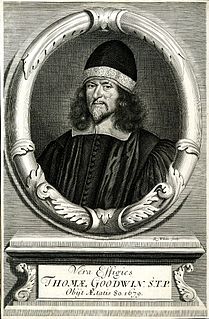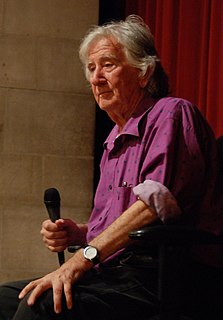A Quote by Thomas Bernhard
The thinking man always finds himself in a gigantic orphanage in which people are continually proving to him that he has no parents.
Related Quotes
I think with Lyndon Johnson, the most important thing I learned was that he never had the sense of security that comes from inside. It always depended on other people making him feel good about himself, which meant that he was always beholden, continually needing to succeed. He could never stop. There was such a restlessness in him.
Condemn no man for not thinking as you think. Let every one enjoy the full and free liberty of thinking for himself. Let every man use his own judgment, since every man must give an account of himself to God. Abhor every approach, in any kind or degree, to the spirit of persecution, if you cannot reason nor persuade a man into the truth, never attempt to force a man into it. If love will not compel him to come, leave him to God, the judge of all.
The Indwelling of Christ by faithis to have Jesus Christ continually in one’s eye, a habitual sight of Him. I call it so because a man actually does not always think of Christ; but as a man does not look up to the sun continually, yet he sees the light of it. So you should carry along and bear along in your eye the sight and knowledge of Christ, so that at least a presence of Him accompanies you, which faith makes.
None of our men are 'experts.' We have most unfortunately found it necessary to get rid of a man as soon as he thinks himself an expert because no one ever considers himself expert if he really knows his job... Thinking always ahead, thinking always of trying to do more, brings a state of mind in which nothing is impossible.
Theatre has nothing to do with buildings or other physical constructions. Theatre - or theatricality - is the capacity, this human property which allows man to observe himself in action, in activity. Man can see himself in the act of seeing, in the act of acting, in the act of feeling, the act of thinking. Feel himself feeling, think himself thinking.
It's just as hard for man to break the habit of thinking of himself as central to the species as it was to break the habit of thinking of himself as central to the universe. He sees himself quite unconsciously as the main line of evolution, with a female satellite revolving around him as the moon revolves around the earth. This not only causes him to overlook valuable clues to our ancestry, but sometimes leads him into making statements that are arrant and demonstrable nonsense.
Thus ordered thinking arises out of the ordered course of nature in which man finds himself, and this thinking is from the beginning nothing more than the subjective reproduction of the regularity according to the law of natural phenomena. On the other hand, this reproduction is only possible by means of the will that controls the concatenation of ideas.
If you punish a child for being naughty, and reward him for being good, he will do right merely for the sake of the reward; and when he goes out into the world and finds that goodness is not always rewarded, nor wickedness always punished, he will grow into a man who only thinks about how he may get on in the world, and does right or wrong according as he finds advantage to himself.
It is not a slight thing, gentlemen, to force a man to say what he is, or what he believes himself to be; for that supreme word of man, that single expression which he utters of and upon himself is decisive. It lays down the basis upon which all judgment of him is to be formed. From that moment all the acts of his life must correspond to the answer given by him.







































